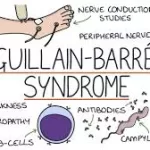Cancer patients often spend significant amounts of time engaging with the healthcare system—attending doctor’s appointments, undergoing tests, picking up prescriptions, and receiving treatment. This burden, known as “time toxicity,” can take away from the precious time patients have outside of medical care. However, a recent pilot study led by researchers from the Perelman School of Medicine at the University of Pennsylvania and Penn Medicine’s Abramson Cancer Center suggests that digital technology can help reduce this burden.
Published in NEJM Catalyst, the study explores how a simple text messaging system can save cancer patients over an hour per visit. The system enables select patients to bypass in-person pre-infusion visits, a routine requirement for those receiving immunotherapy.
A Fast-Track System Inspired by TSA Pre-Check
Dr. Ronac Mamtani, section chief of Genitourinary Cancers at Penn Medicine, along with Dr. Erin M. Bange, assistant professor at Memorial Sloan Kettering Cancer Center, spearheaded the development of this innovative system. Modeled after the TSA Pre-Check concept, the text messaging platform—developed through the Center for Health Care Transformation and Innovation’s Way to Health platform—allows patients to complete a 16-question symptom check remotely before their infusion appointment. If their responses and lab results indicate no issues, they can proceed directly to treatment without an in-person check-up.
Results from the Pilot Study
In the trial, patients receiving single-agent immunotherapy for solid tumor cancers were randomly assigned to either complete their symptom check in person or via text message. Of the 16 patients who were fast-tracked, each saved more than 60 minutes per visit, including a 30-minute reduction in wait time, compared to the 15 patients who followed the traditional in-person process.
More importantly, the study found that the fast-track system was safe. There was no significant difference in post-infusion hospital visits or health-related quality of life between the two groups. Given that patients had previously indicated that saving even 45 minutes per visit would positively impact their lives, the results exceeded expectations.
Challenges and Future Implementation
Although the results are promising, the study also revealed some limitations. While an additional 19 patients were eligible for fast-tracking, they ultimately continued with in-person visits due to patient or provider preferences and other coordination issues. The researchers emphasize that the text-based system is meant to be an optional tool rather than a mandatory change in care delivery.
Moving forward, the team plans to refine the tool based on provider feedback and conduct a larger, real-world trial to evaluate its effectiveness in a broader setting.
A Step Toward More Patient-Centered Care
Dr. Mamtani highlights the ultimate goal of this initiative: to give cancer patients more control over their time.
“Cancer patients are repeatedly asked to hurry up and wait while getting care. What we’re trying to address is just the tip of the iceberg in terms of giving patients back valuable time to focus on living,” he said.
Disclaimer
The information in this article is for informational purposes only and does not constitute medical advice. Patients should consult their healthcare providers before making any decisions regarding their treatment options.











